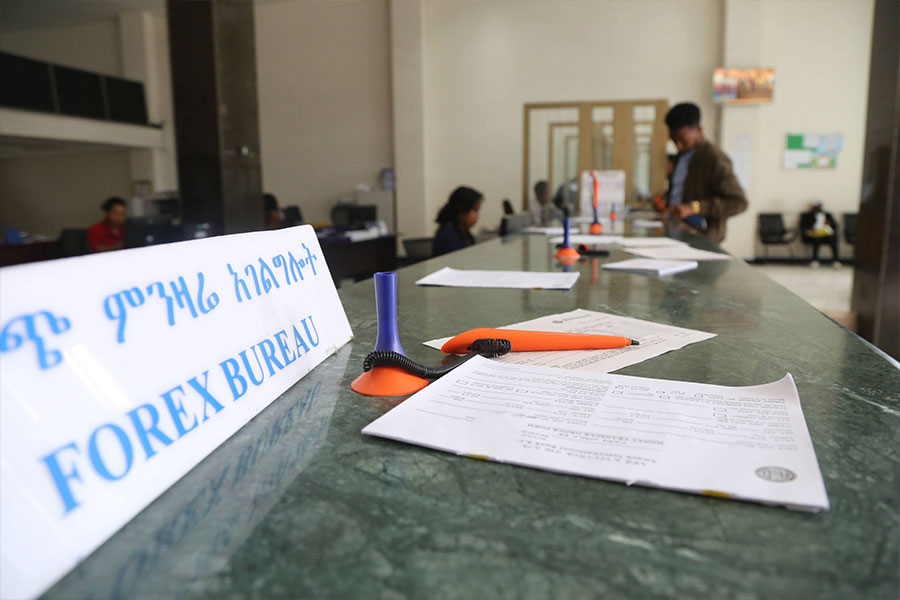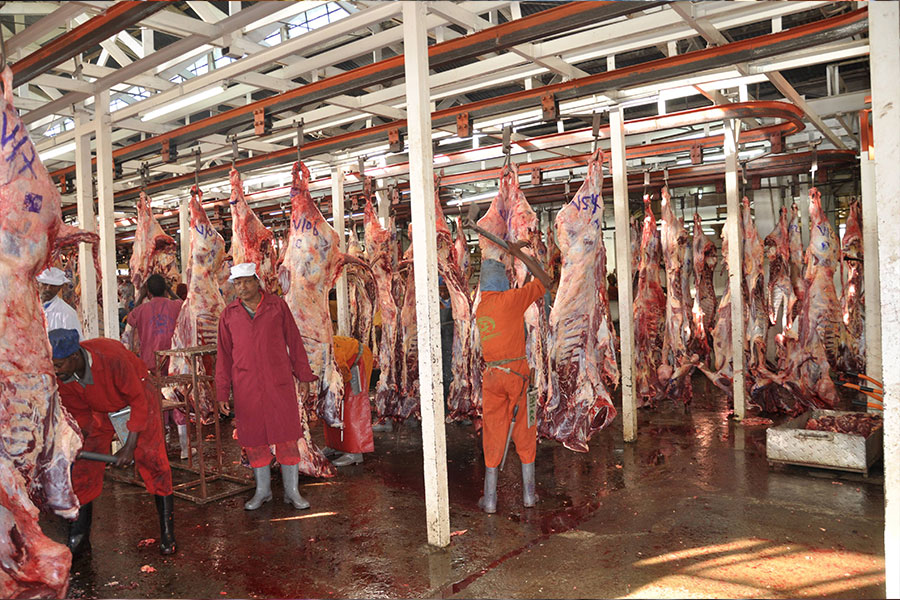
Radar | Nov 14,2020
Apr 2 , 2022
By Morounfolu (Folu) Olugbosi (MD)
As countries around the world - from Kenya to Canada, South Africa to Sweden - relish the prospect of an unofficial transition of COVID-19 from pandemic to endemic and start to ease pandemic-related restrictions, many of us in the tuberculosis (TB) community find it hard to relate. In TB, we know what can happen when a pandemic becomes an accepted fact.
Understandably, people everywhere are eager to return to normal. COVID-19, the thinking goes, has evolved to be milder, so it is time to stop worrying and get on with our lives. Although the virus is still present, many think it has reached endemic levels and so restrictions are being lifted worldwide, despite warnings from more than a few epidemiologists.
There is no shortage of pandemics that continue to plague humanity. Malaria killed more than 620,000 people in 2020. TB was responsible for the deaths of more than 1.5 million people in 2020, and more than a third of these deaths took place in Sub-Saharan Africa.
Prior to COVID-19, hope was on the horizon that the TB pandemic was beginning to ebb. Over the past decade, case rates and fatalities had been slowly declining while research and development efforts had yielded breakthroughs.
After four decades without new medicines approved to treat TB, three have been approved in the past ten years. New technology can not only diagnose TB more easily and quickly than before but also determine if the infection has any drug resistance. That counts as progress in the TB world - but there is always the challenge of getting the technologies to the people who need it. And that is where the COVID-19 pandemic really hit hard.
In 2020, the most recent statistics that we have for TB, the number of deaths equals that of 2017, with five years of progress eliminated. An estimated 9.9 million people had TB infections, but only 5.8 million were diagnosed. We lost 10 years of progress in this benchmark. And only about one-third of the estimated 450,000 people with multi-drug resistant TB or Rifampin-resistant TB started treatment in 2020, a 15pc decrease from the previous year.
In Africa, countries like Nigeria, South Africa and Uganda had been making progress against TB, with deaths from the disease steadily declining, but these declines ended—all because of the COVID-19 pandemic and related control measures.
In 2015, the world pledged to reduce deaths from TB by 90pc by the year 2030, and we are nowhere close to achieving this goal. Epidemiologists evaluating the impact of this failure found that, before the COVID-19 pandemic began, sub-Saharan Africa had been hit hard by TB, with a heavy economic impact and significant loss of life from failing to meet this ambitious benchmark.
And yet, the World Health Organisation (WHO) reports that, in sub-Saharan Africa, domestic spending on TB prevention, diagnostic and treatment services has declined over the past 10 years. It is no wonder the pressures of COVID-19 tore apart the TB safety net. We too, in Africa, had decided it was ok to live with a lethal disease.
Yes, overall global spending on the disease is less than half of what it needs to be but for us in Africa, TB is not a disease of somewhere else. It is here and we need to roll up our sleeves and fight back or will never stop plaguing us.
No disease should be tolerated, especially deadly infections like TB and COVID-19. All diseases need to be tackled with new technologies and the outreach needed to make sure they are used appropriately. Endemic is never good enough.
PUBLISHED ON
Apr 02,2022 [ VOL
23 , NO
1144]


Radar | Nov 14,2020

Radar | Oct 17,2020

Radar | Dec 25,2021

Radar | May 06,2023

News Analysis | Sep 26,2021

Commentaries | Oct 30,2021

Fortune News | Apr 22,2022


Commentaries | Jan 28,2023

Films Review | Jun 20,2020

My Opinion | 131970 Views | Aug 14,2021

My Opinion | 128359 Views | Aug 21,2021

My Opinion | 126297 Views | Sep 10,2021

My Opinion | 123913 Views | Aug 07,2021

Dec 22 , 2024 . By TIZITA SHEWAFERAW
Charged with transforming colossal state-owned enterprises into modern and competitiv...

Aug 18 , 2024 . By AKSAH ITALO
Although predictable Yonas Zerihun's job in the ride-hailing service is not immune to...

Jul 28 , 2024 . By TIZITA SHEWAFERAW
Unhabitual, perhaps too many, Samuel Gebreyohannes, 38, used to occasionally enjoy a couple of beers at breakfast. However, he recently swit...

Jul 13 , 2024 . By AKSAH ITALO
Investors who rely on tractors, trucks, and field vehicles for commuting, transporting commodities, and f...

Jul 5 , 2025
Six years ago, Ethiopia was the darling of international liberal commentators. A year...

Jun 28 , 2025
Meseret Damtie, the assertive auditor general, has never been shy about naming names...

Jun 21 , 2025
A well-worn adage says, “Budget is not destiny, but it is direction.” Examining t...

Jun 14 , 2025
Yet again, the Horn of Africa is bracing for trouble. A region already frayed by wars...

Jul 6 , 2025 . By BEZAWIT HULUAGER
The federal legislature gave Prime Minister Abiy Ahmed (PhD) what he wanted: a 1.9 tr...

Jul 6 , 2025 . By YITBAREK GETACHEW
In a city rising skyward at breakneck speed, a reckoning has arrived. Authorities in...

Jul 6 , 2025 . By NAHOM AYELE
A landmark directive from the Ministry of Finance signals a paradigm shift in the cou...

Jul 6 , 2025 . By NAHOM AYELE
Awash Bank has announced plans to establish a dedicated investment banking subsidiary...